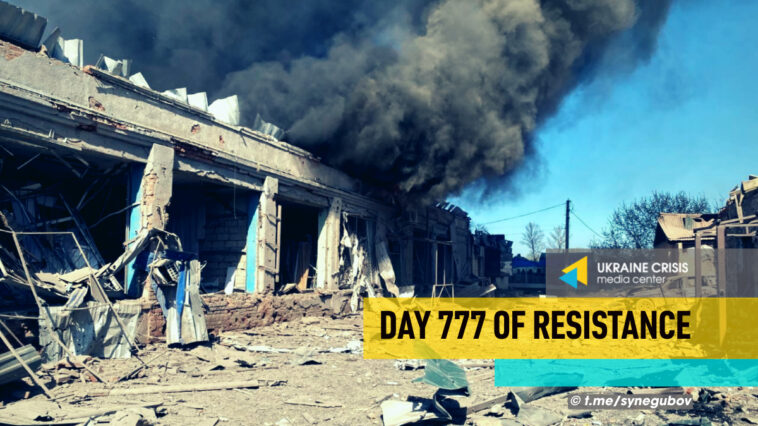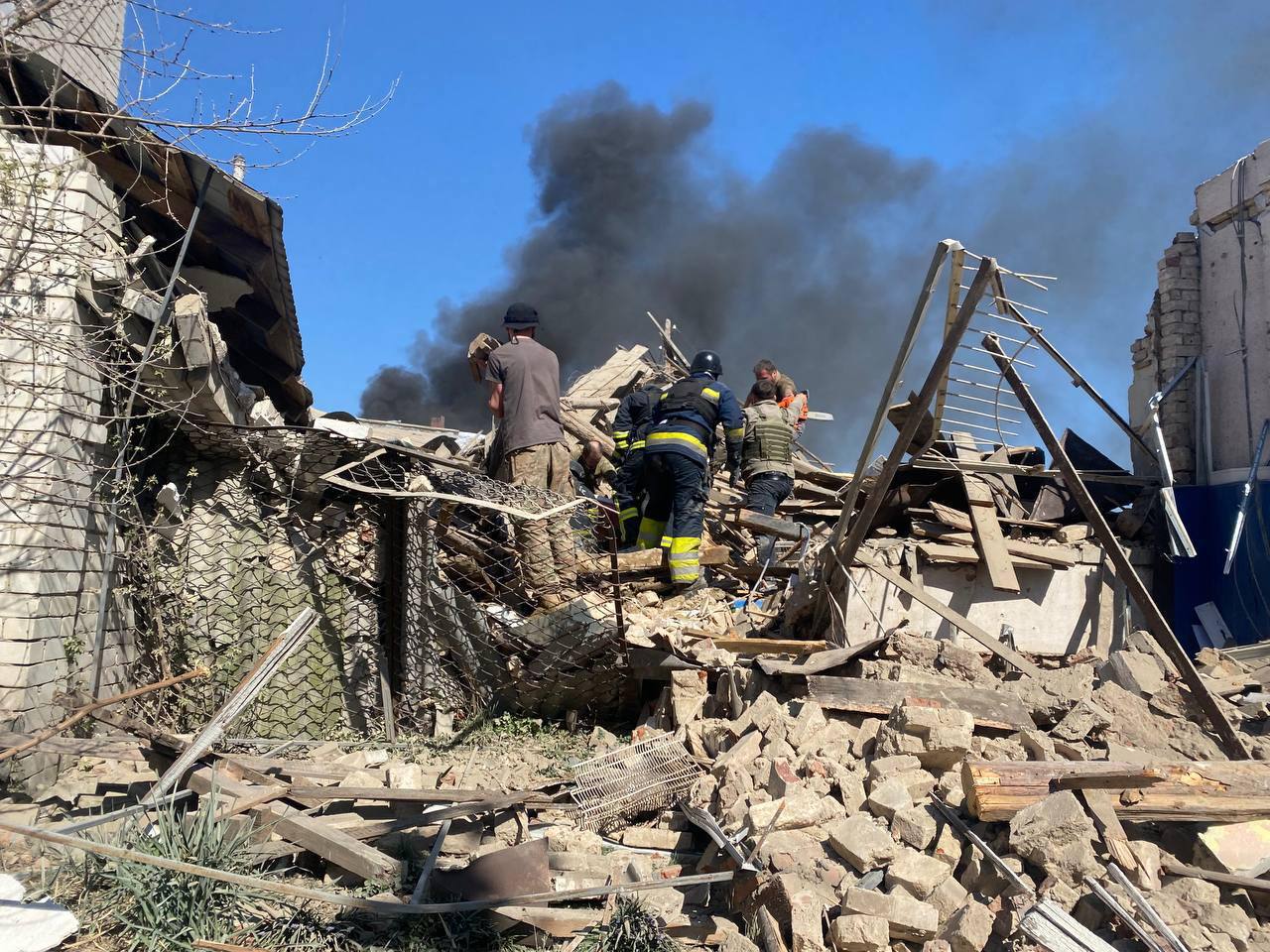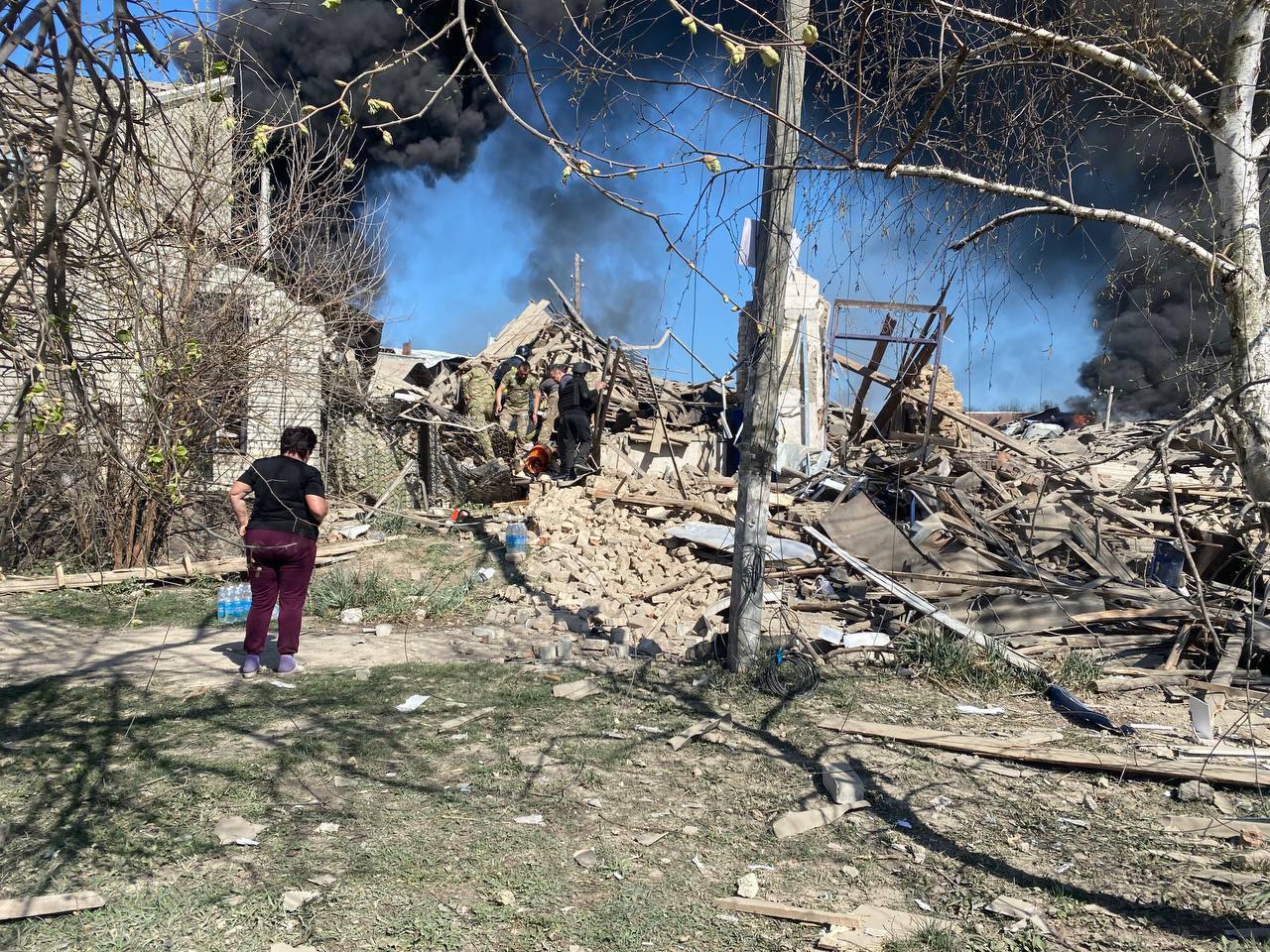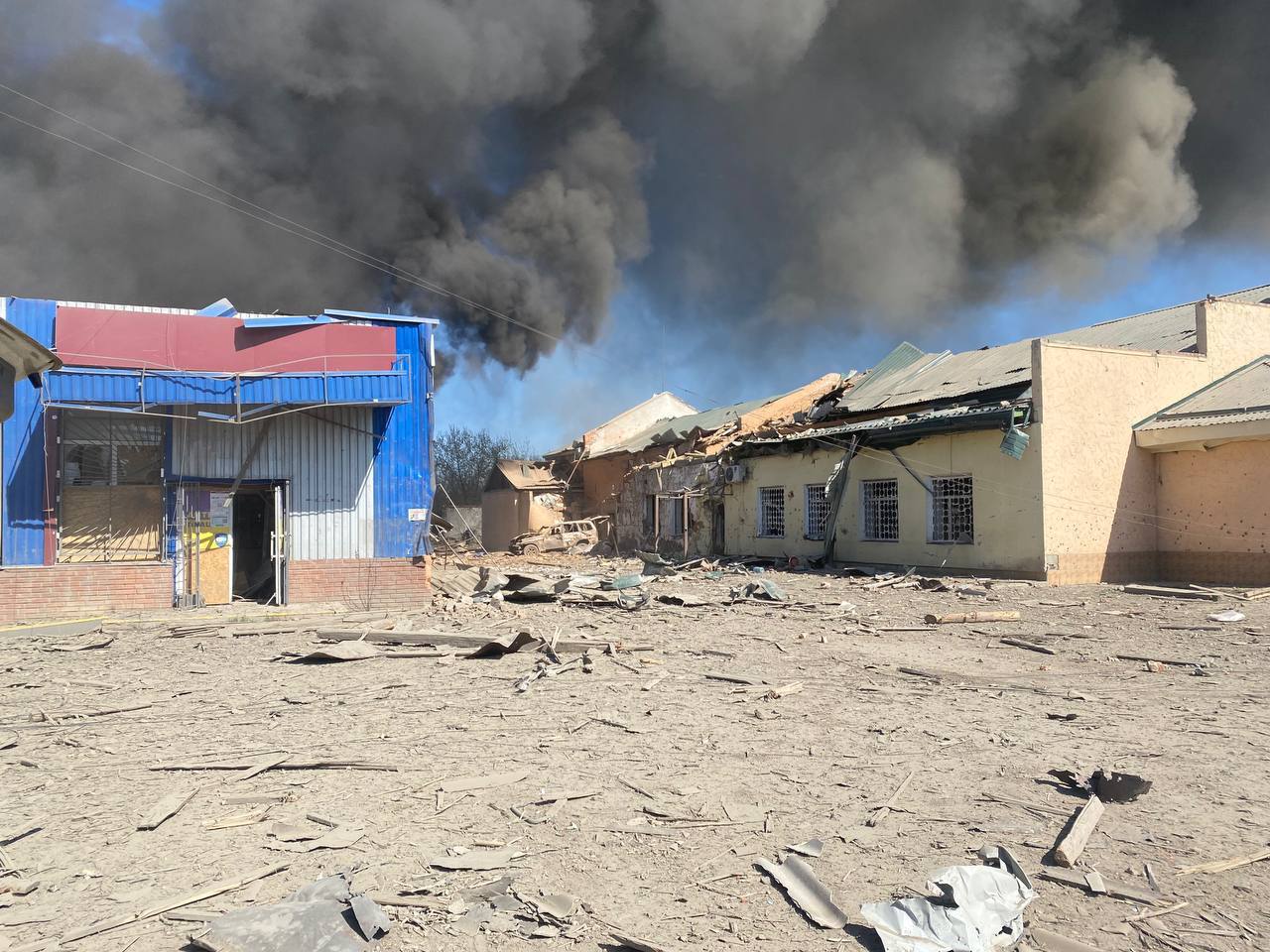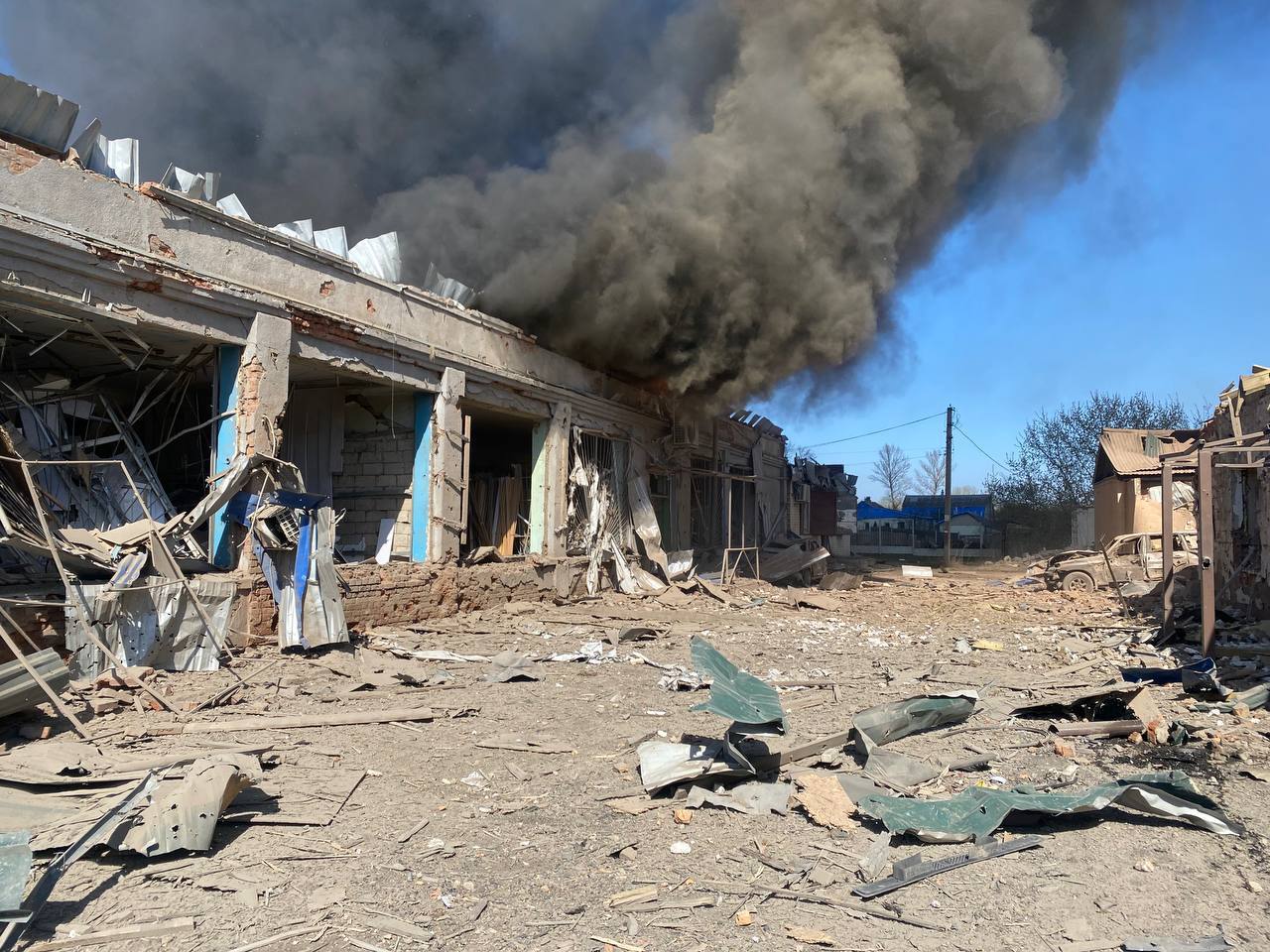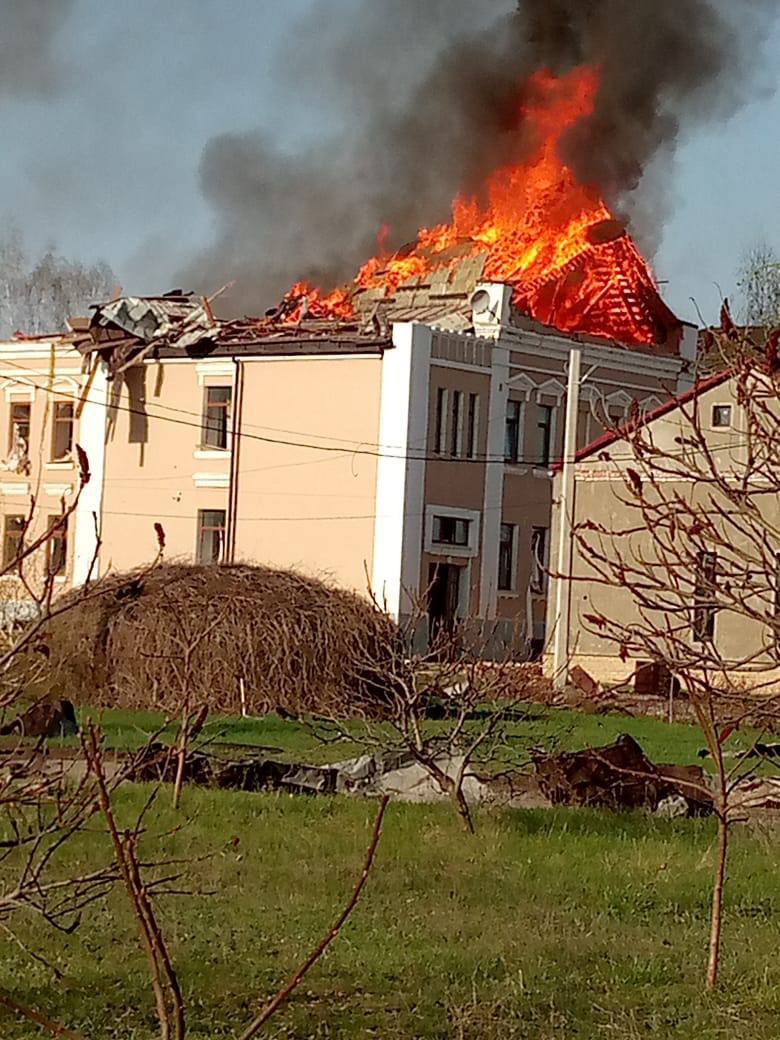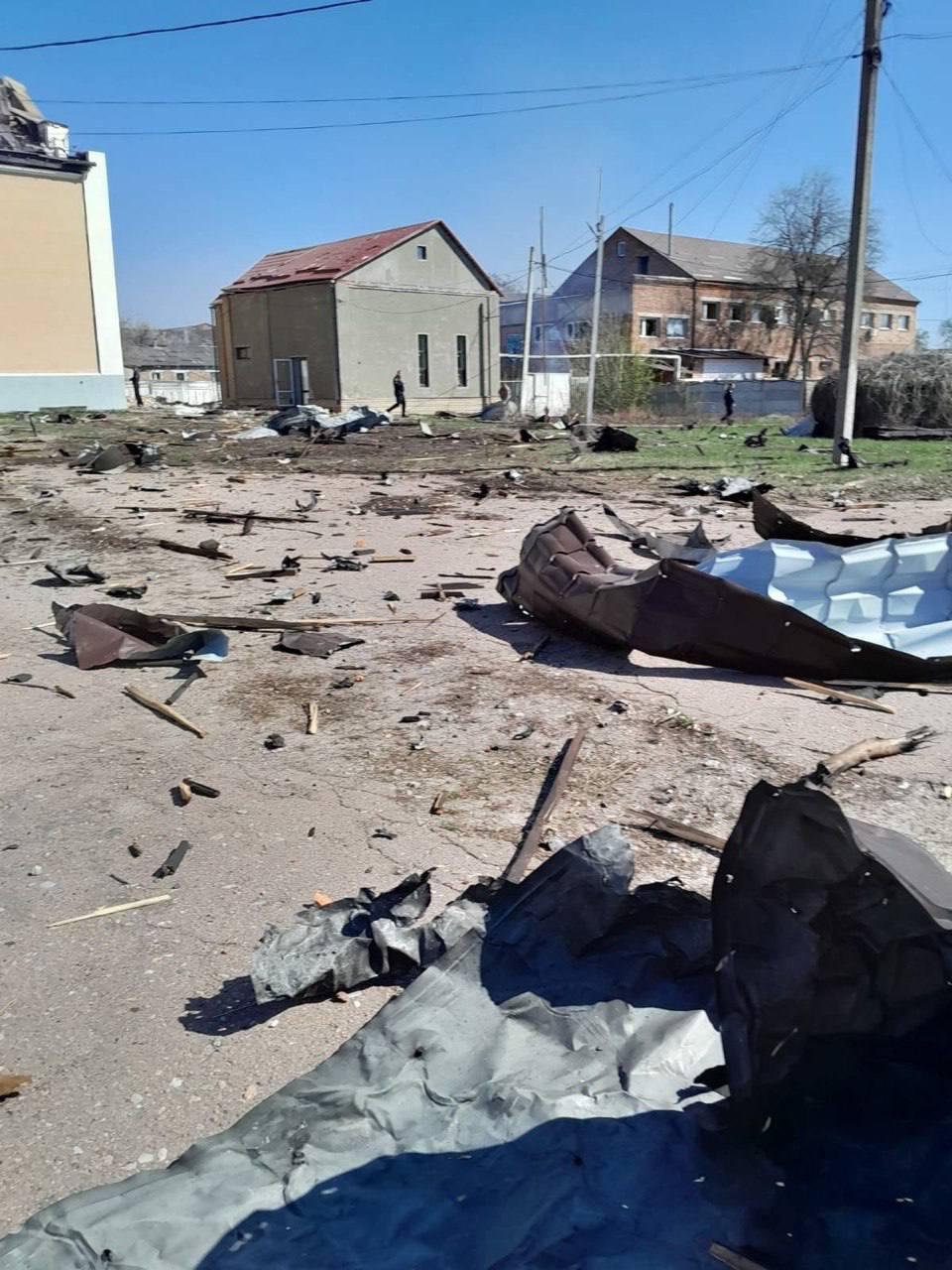A Russian air strike on Kharkiv region kills a 14-year-old girl and two others. Ukraine’s next counteroffensive to show more progress, Zelenskyi says. Switzerland will host a Ukraine peace summit in June.
Russian air strike on Kharkiv region kills a 14-year-old girl and two others
Russian air strikes on the village of Lyptsi and the town of Mala Danylivka in Kharkiv region on Wednesday afternoon hit a grocery store and a pharmacy, killing at least three people, head of the Kharkiv regional military administration, Oleh Synehubov said. Four more people were injured, according to Interior Minister, Ihor Klymenko.
“A 14-year-old girl, and two women, ages 43 and 59, were killed in the attack on Lyptsi. A 16-year-old boy and a 34-year-old woman were injured. [Rescuers] continued searching through the rubble for victims,” Synehubov said.
Russia dropped two glide bombs on Lyptsi, head of the Kharkiv regional police, Volodymyr Tymoshko said on television.
Another strike with two guided bombs destroyed a clinic in Vovchansk, lightly injuring a guard there, Klymenko said. Houses and outbuildings were also damaged in the attack. Separately, Russian troops dropped an explosive on a bus, wounding a 54-year-old man, according to the Interior Minister.
Ukraine’s next counteroffensive to show more progress, Zelenskyi says
In the interview with Politico, Ukrainian President Volodymyr Zelenskyi acknowledged that Ukraine’s attempted counteroffensive against Russia last year was “not so successful,” and vowed that the next attempt to strike back against Russia would show more progress.
Without elaborating, Zelenskyi implied that Ukraine had been sabotaged from within in its last offensive, noting that “the Russians knew where we were going to attack” and promising “history will tell” how they knew.
The next Ukrainian counteroffensive, Zelenskyi said, “must give us some results.” But it would be a grave mistake, Zelenskyi insisted, for Ukraine’s allies to back away from their commitment to the war effort.
If the front remains stable, he earlier told The Washington Post, Ukraine can arm and train new brigades in the rear to conduct a new counteroffensive later this year.
Ukraine has a counteroffensive plan, Zelenskyi told Bild. But it requires weapons, including U.S.-supplied ones. Russia has more people and weapons, he continued, but Ukraine will be able to secure an edge thanks to the quality of weapons.
The munitions Ukraine now has are only enough to conduct defensive operations, Zelenskyi said.
Last month, Ukrainian Ground Forces Commander, Lieutenant General Oleksandr Pavlyuk stated that Ukraine will try to stabilize the frontline, seize the initiative and conduct unspecified counteroffensive actions in 2024.
Switzerland to host Ukraine peace summit in June
The Swiss government will host a two-day high-level conference in June aimed at achieving peace in Ukraine, it said on Wednesday. The conference will be held June 15-16 at the Bürgenstock resort in the canton of Nidwalden outside the city of Lucerne.
The summit “aims to provide a platform for a high-level dialogue on ways to reach a comprehensive, just and lasting peace for Ukraine based on international law and the UN Charter,” the Swiss Federal Department of Foreign Affairs said in a statement.
It will aim to create a framework favorable to a comprehensive and lasting peace in Ukraine, as well as “a concrete roadmap for Russia’s participation in the peace process,” the statement reads.
Swiss Foreign Minister Ignazio Cassis said more than 100 countries would be invited to the gathering. The list of participating countries is far from being finalized.
Russia has said it will not take part in talks in Switzerland. A representative of the Office of the President of Ukraine earlier said that Russia is violating all possible provisions of international law and will not participate in the inaugural global peace summit. Switzerland said in January it would host a peace summit at the request of Ukrainian President Volodymyr Zelenskyi. The announcement was made during Zelenskyi’s visit to Bern.
Does “Russia” even exist? Ukraine in Flames #595
In this episode of Ukraine in Flames, Horbach, Pavlenko, and Starodub delve into the dynamics surrounding Russia’s identity, geopolitical future, and internal stability. Our experts introduce the notion of replacing the term “Russia” with the more neutral “Northern Eurasia,” highlighting the symbolic power and mythos attached to the concept of Russia, exploring the historical roots and evolution of Russia’s identity, emphasizing the consolidation of a new concept of a future Russian empire in response to past losses and imperial ambitions, and examining the influences of political Eurasianism and the “Russian world” ideology on contemporary Russian politics. Take a watch of UIF #595 to find out more about the multifaceted understanding of Russia’s geopolitical landscape and the complexities shaping its future trajectory.
Guests:
- Volodymyr Gorbach, Executive Director of the Project, Executive Director of the Institute for the Transformation of Northern Eurasia
- Iryna Pavlenko, Candidate of Historical Sciences, Head of the Department of Political System Development, National Institute for Strategic Studies
- Andrii Starodub, PhD in History

